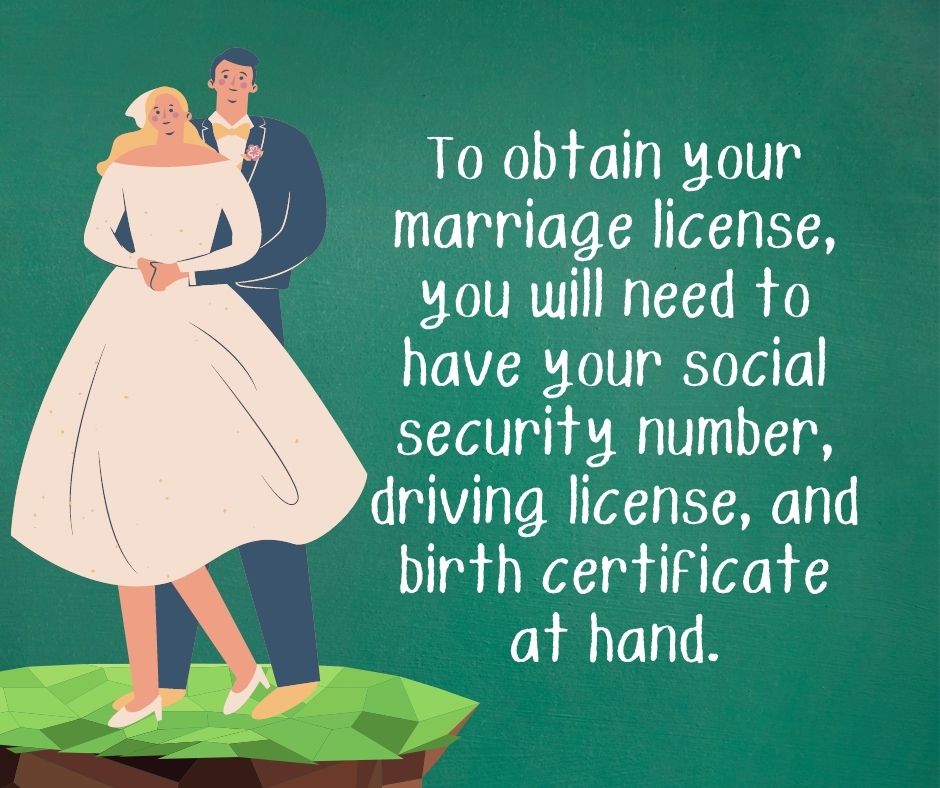7 Legal Things to Do After Getting Married
WhatToGetMy Instructional Article
- It is nothing short of thrilling to be in a union with your long-term partner.
- However, marriage comes with several legal obligations.
- Discover and learn seven legal things to do after getting married.
Marriage is a beautiful thing and the ultimate step in any long-term relationship. Having a life partner with whom you can share your life is fulfilling and brings great joy. Beyond love, marriage is also a coming together set of values, cultural practices, and families. However, marriage is just the beginning. There are legal things to do after getting married. These legal steps will ensure that you secure your status and future as a newlywed couple.
There are some factors to consider before the wedding bells start chiming. First and foremost, you need to have attained the legal age of consent to get married. You and your partner must be adults of sound mind; this means that you both understand what you are getting into and the consequences of your choices. You will also need to be unmarried.
Once you have met the above requirements, it is now time to begin the process towards your matrimony. You will first need to obtain a marriage license from your state marriage license bureau and notify them of your intention to get married. You are also required to have witnesses to your marriage. To obtain your marriage license, you will need to have your social security number, driving license, and birth certificate at hand. However, if you were previously married, you are required to present a certificate showing that you have officially dissolved that marriage.

After you get your license, you can now get an officiant who will preside over your ceremony. An officiant is a lawful person appointed by the state to help oversee your wedding.
After you get your license, you can now get an officiant who will preside over your ceremony. An officiant is a person who is legally recognized by the state to help oversee your wedding.
The long-awaited day arrives. Here you are, finally married. Below, we take you through seven legal things to do after getting married.
01. Change your surname.
While some married couples prefer to have one surname, others choose to stay with their surnames as they were before marriage. If you do decide to change your last name, start by visiting official institutions such as your local registry, insurance companies, your bank, and your place of work with your marriage certificate as proof of change. You can notify your bank via a Name Change Notification Letter with proof of documentation upon request. If you wish to change your surname, some of the documents you will have to change after marriage include your passport, social security card, and driver’s license.
02. How you file your tax returns.
After you get married, the next step is to decide if you will file your tax returns as a couple or maintain filing separate tax returns. Some benefits of filing tax returns as a couple include deductions and borrowing personal tax credits, therefore lowering the tax bracket for each partner.
Married couples can also save a few coins by avoiding gift and estate taxes. As a rule of thumb, when someone has left you their estate, you must pay taxes since the estate is considered a form of income. Married couples are exempt from this form of payment. Further, if one spouse passes on and leaves behind their estate, the surviving spouse is not obligated to pay estate taxes.
03. How you acquire property.
Another legal change that happens when you get married is acquiring property. Any property bought during the marriage is marital property. It could be anything ranging from a house to a teacup. In some states, equitable distribution of property applies upon the dissolution of a marriage. Under equitable distribution, property acquired before and during the marriage is divided equally between divorcees when dissolving the marriage.
04. Inheritance rights.
One of the documents to highly consider legally updating to include your spouse is your will. Draft a clear and concise one incorporating your partner after you are married. Inheritance laws and rights govern the universal practice of how property, rights, obligations, debts, assets, and titles pass from the owner to who they want it to benefit. The nuclear family, usually consisting of parents and siblings, are considered immediate beneficiaries to your property upon your passing. However, when couples are married, spouses are entitled to the majority share of each other’s property upon demise, especially when there is no will in place. Property is divided according to the contents of that will in the presence of one.
A will is different from a prenuptial agreement; it is a legal document governing how a person wishes to share their property upon their demise. On the other hand, a prenuptial agreement determines how properties and assets are divided and additional restrictions on what a partner may inherit from the other’s estate before entering a marriage. A prenuptial agreement gives a partner the autonomy to keep some assets separate.
05. Update your life and health insurance policies.
Life and health insurance policies are vital as they offer us security in uncertain times. Depending on the type of job you have, most employers have health insurance coverage as part of their benefits package and salary. These insurance packages usually cover a spouse and their children. Once you are married, you and your partner should update the beneficiaries on your life and health insurance policies.
06. The making of healthcare decisions.
Healthcare professionals often turn to the spouse of a patient when there is a need to make a medical decision on their behalf. Decisions such as approving surgical processes on behalf of a partner are common scenarios. Once you are legally married, it is highly advisable to appoint your spouse as a proxy, with the guidance of a medical power of attorney to empower them to make healthcare decisions.
07. Consider opening a joint bank account.
When couples are legally married, sharing finances and day-to-day expenses becomes a direct result of their union. Such costs include how and what property you acquire, utilities, house shopping, and rent. Therefore, it is practical for married couples to open a joint bank account to streamline the process of paying for these expenses. A mutual bank account allows for shared access to finances between spouses. The right of survivorship governs this type of account. In the event of the death of one spouse, the funds are still accessible to the surviving spouse. Among the many benefits of survivorship rights, you will spend less time providing documentation proof if you keep two separate accounts.
According to a survey, six percent of Americans have divorced on money issues, highlighting how crucial it is to make necessary legal changes financially.

All in all, the values of love and trust build a good marriage. There must be transparency between you and your partner. Now that you are a team, why not implement the above legal changes with your partner? Not only will this bring the two of you together, but it will also help you enjoy a smooth sailing marriage in the long run.
Frequently Asked Questions
1. What should I do before I get married?
So, you want to get married! First things first, you need to obtain a license to get married. This license is your approval by the state to get married, after which you will be eligible for a marriage certificate. Further, you should update your insurance and retirement benefits policies to include your spouse as a beneficiary in the event of your demise.
2. What happens to my property and assets after I get married?
After you are married, the property acquired with your spouse during your time together is presumed to be marital property. However, in some states, the property acquired by either partner before the marriage automatically becomes marital property.
3. What does it mean when I am officially married?
When you are officially married, your respective state officially recognizes your union with a marriage license and a certificate.
4. What are my rights or obligations in a marriage?
Some of your rights or obligations in a marriage include the right to open joint bank accounts and the right to receive a family rate discount on life, health, and car insurance.
5. What are some of the benefits of filing tax returns as a couple?
In addition to being eligible for more tax exemptions, some benefits of filing tax returns as a couple include the ability to give your spouse monetary gifts without any tax consequences.
6. What happens if my spouse has tax liabilities?
At one point or another, we all experience tax liabilities. If a partner has any tax liability before marriage, this remains their own after marriage. Should a spouse have any tax liabilities or loans they have defaulted on, they must make the payments individually. It can be incredibly challenging for spouses to file their tax returns jointly. In such a case, spouses need to notify the Internal Revenue Service (IRS). The IRS then rightfully allocates a tax refund via what is known as Injured Spouse Allocation.
7. Is it mandatory to change my surname after I am married?
No. You do not need to change your surname after you get married. However, it is advisable in the long run to avoid time spent in providing additional proof in cases where your legal documents are requested.
8. What do I need to update after I am legally married?
Some things to consider updating via your attorney once you are legally married are your will or trust. It is also vital that you update your employment records to make you eligible for leave if your spouse is sick or injured.
9. Do I need a marriage certificate to get married legally?
To get married legally, you will first need to obtain a marriage license. Once married, the officiant of the ceremony will forward the support and all accompanying documents to facilitate the processing of your marriage certificate.
10. Can I testify against my spouse in a court of law?
Couples enjoy the spousal privilege. They may choose not to testify against their partner in a court of law. A partner has the option to claim “communications during the marriage” to prevent them from testifying and giving confidential information shared during the marriage. The exceptions to this rule are in cases of domestic abuse. In such an instance, the court has the power to compel a spouse to give their testimony.
11. Do you need a marriage certificate to get married legally?
A marriage certificate is legal proof that you are married. To get married, you need to first have obtained your marriage license, after which, you can use the license to get your certificate.
You may also like this article on Fun Things To Do After You Get Married
01 HOUR 06 MINUTES
ESTIMATED TIME DESIGNING AND UPLOADING THIS ARTICLE
13 HOURS
ESTIMATED TIME RESEARCHING AND WRITING THIS ARTICLE
You Might Also Like

How to Get Over a Cheating Husband and Move on: 11 Ways to Get on With Your Life
How to Get Over a Cheating Husband and Move on: 11 Ways to Get on With Your Life WhatToGetMy Instructional Article If you are wondering how to get over a cheating husband and move on , then this article is for you. We have compiled

9 Great Idea on How to Get Your Husband to Help Around the House Without Nagging
9 Great Idea on How to Get Your Husband to Help Around the House Without Nagging WhatToGetMy Instructional Article If you are reading this, you may be the wife helping the husband, and you are looking for how to get your husband to help. If

Signs Your Husband Is Cheating With Your Friend
Signs Your Husband Is Cheating With Your Friend WhatToGetMy Instructional Article Finding out that your husband has been cheating on you can be a blow and worse if the person he cheats on you with is someone you consider a friend. Unfaithful partners are good

How to Tell if Your Husband Is Lying: 13 Signs He Is Being Unfaithful
How to Tell if Your Husband Is Lying: 13 Signs He Is Being Unfaithful WhatToGetMy Instructional Article There are many reasons why husbands lie in relationships. Sometimes they lie to protect the wife’s feelings over small things such as their opinion on the wife’s appearance.

Why Couples Argue over the Small Things – 17 Reasons Why and Ways to Overcome It.
Why Couples Argue over the Small Things – 17 Reasons Why and Ways to Overcome It. WhatToGetMy Instructional Article Conflict is bound to happen in relationships because people are fundamentally different. What isn’t healthy, however, is this conflict being persistent and over little things, as

15 Signs Of A Disrespectful Wife
Signs Of A Disrespectful Wife WhatToGetMy Instructional Article If you’re asking, “why does my wife disrespect me?”, this article has 4 answers to that question. It also helps you with 15 definite signs your wife doesn’t respect you and shows you how to deal with

How to Introduce a Newly Married Couple – 5 Wedding Reception Introductions.
How to Introduce a Newly Married Couple – 5 Wedding Reception Introductions. WhatToGetMy Instructional Article Find out great tips on how to introduce a newly married couple in this article. If you also want to know how to be introduced at your wedding, you will

11 Tips on How to Show Your Wife She Is Top Priority
11 Tips on How to Show Your Wife She Is Top Priority WhatToGetMy Instructional Article Learning how to show your wife she is top priority could help you bring back the long-lost love and happiness in your home. Many homes feel like a lonely island

How to Ignore Your Boyfriend to Teach Him a Lesson
How to Ignore Your Boyfriend to Teach Him a Lesson WhatToGetMy Instructional Article When a man ignores you, it is hurtful and frustrating especially when you like him – and even worse when you are in love with him. Although some reasons for ignoring you

How to make your wife’s birthday special?
How to Make Your Wife’s Birthday Special WhatToGetMy Instructional Article You look at your calendar and realize that it is almost time for your wife’s birthday and you find yourself wondering how to make your wife’s birthday special. For this birthday you want to get


